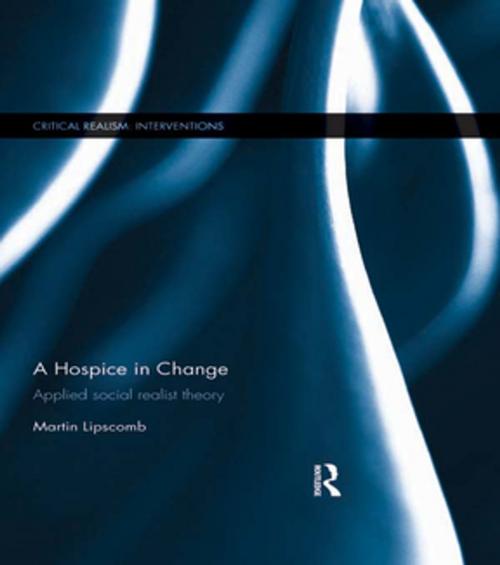A Hospice in Change
Applied Social Realist Theory
Nonfiction, Social & Cultural Studies, Social Science, Sociology| Author: | Martin Lipscomb | ISBN: | 9781134637164 |
| Publisher: | Taylor and Francis | Publication: | October 15, 2013 |
| Imprint: | Routledge | Language: | English |
| Author: | Martin Lipscomb |
| ISBN: | 9781134637164 |
| Publisher: | Taylor and Francis |
| Publication: | October 15, 2013 |
| Imprint: | Routledge |
| Language: | English |
A Hospice in Change: Applied Social Realist Theory reports upon a study into aspects of the ways in which structural and organisational developments, professional cultures and ‘bedside’ or patient focused clinical practice interact within a single UK institution. While the findings of this study are time and context specific, the events and social processes being described may nonetheless resonate closely with the experience of healthcare practitioners at other hospices both within and without the UK. The work examines themes and ideas that hospice and palliative care practitioners, as well as those involved or interested more broadly in ‘end of life issues’, may find relevant.
It is argued that differential morphogenesis can be identified between structures (social and cultural) and agents (individual and group) at an independent healthcare charity in southern England. A Hospice in Change connects theory and philosophy with concrete research practice to provide a worked example of Margaret Archer’s realist social theory.
A Hospice in Change: Applied Social Realist Theory reports upon a study into aspects of the ways in which structural and organisational developments, professional cultures and ‘bedside’ or patient focused clinical practice interact within a single UK institution. While the findings of this study are time and context specific, the events and social processes being described may nonetheless resonate closely with the experience of healthcare practitioners at other hospices both within and without the UK. The work examines themes and ideas that hospice and palliative care practitioners, as well as those involved or interested more broadly in ‘end of life issues’, may find relevant.
It is argued that differential morphogenesis can be identified between structures (social and cultural) and agents (individual and group) at an independent healthcare charity in southern England. A Hospice in Change connects theory and philosophy with concrete research practice to provide a worked example of Margaret Archer’s realist social theory.















